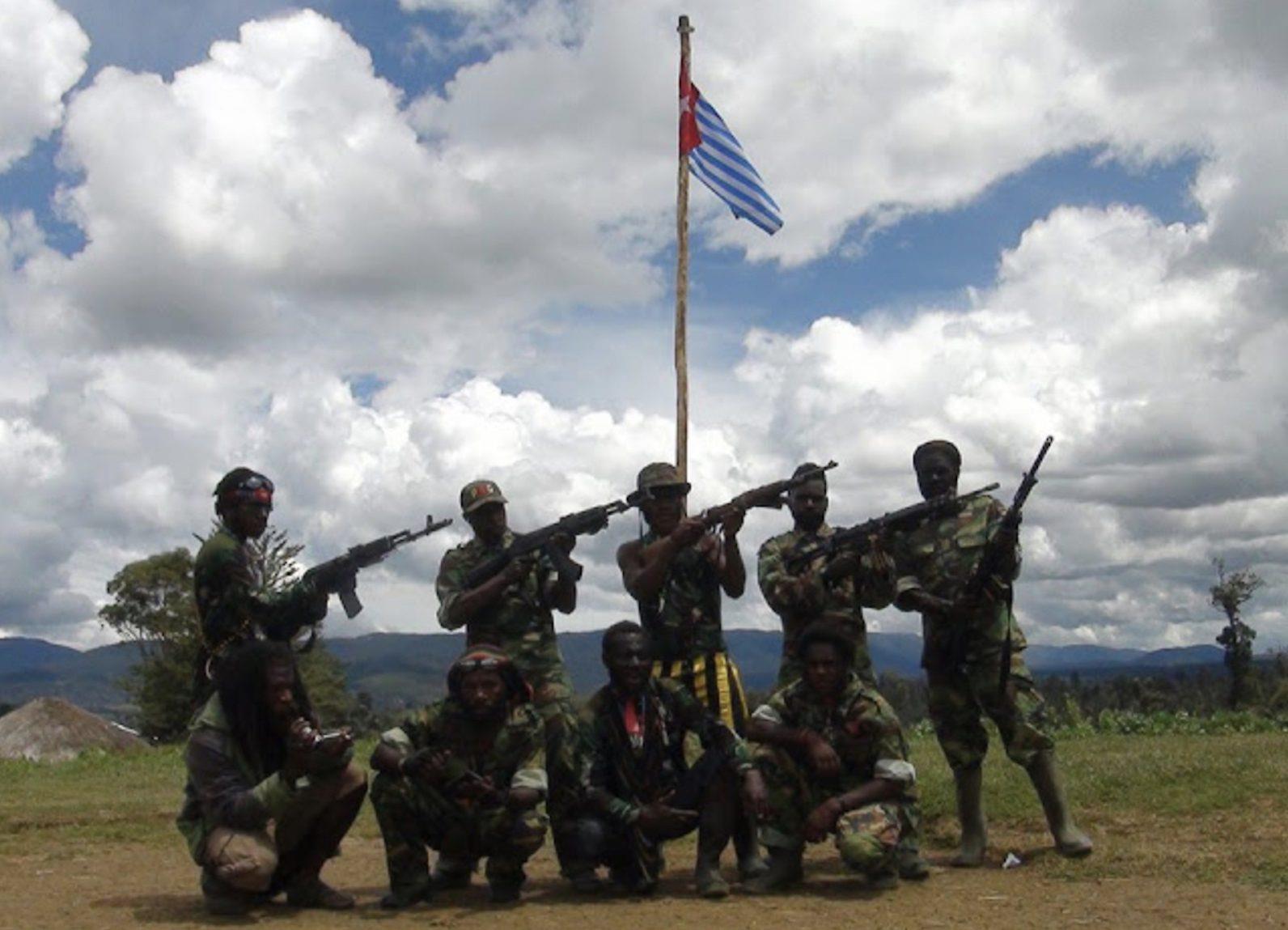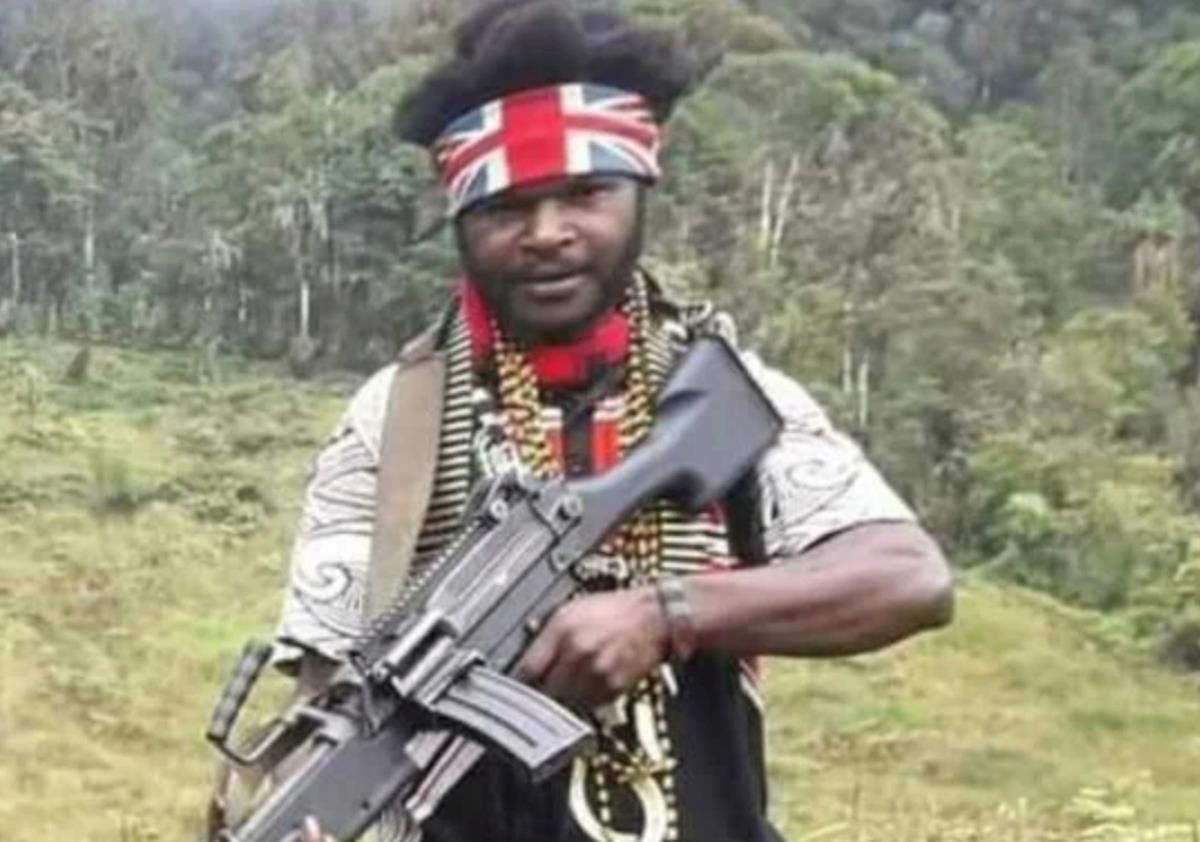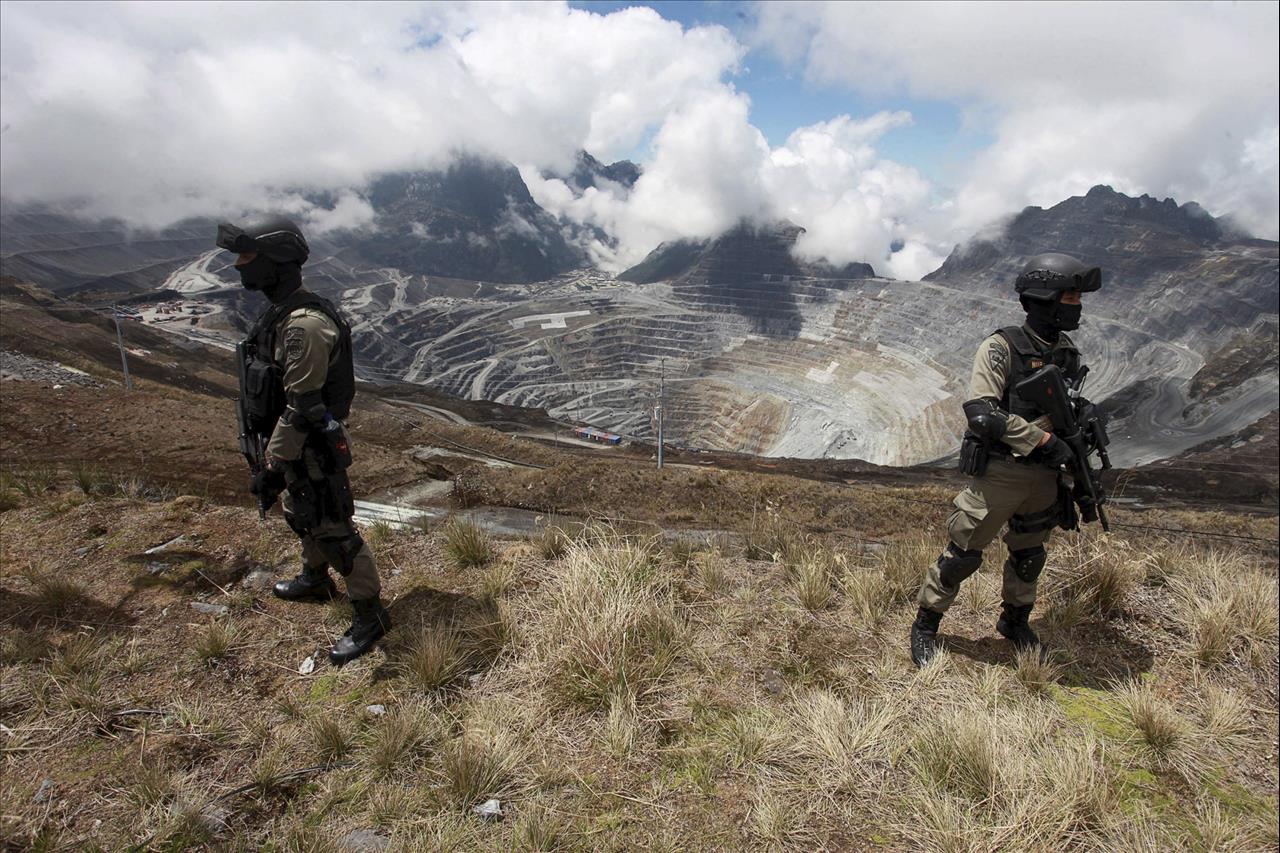(MENAFN- Asia Times) JAKARTA – Papuan rebels and captive New Zealand pilot Philip Mehrtens have trekked deeper into the heart of the rugged Central Highlands as they seek to evade elite Indonesian Special Forces (Kopassus) troops who have shadowed them for the past three weeks.
Sources familiar with the unfolding hostage drama believe it is nearing a crucial point, although Indonesian armed forces (TNI) commander Admiral Yudo Margono and senior government officials all say they are seeking a peaceful solution.
Margono says he turned down an offer of assistance from New Zealand Ambassador Kevin Burnett, presumably to help in low-level negotiations between Free Papua Movement (OPM) intermediaries and local district officials and religious leaders.
Within days of Mehrtens capture, the Indonesian Armed Forces (TNI) deployed two battalions of the entire Jakarta-based Unit 81 counter-terrorism force to Timika, the city on Papua's south coast which serves as a staging post for the operation.
Highly-trained operators have been tracking rebel leader Egianus Kogoya and his followers since then as they headed north from a small airstrip at Paro in Nduga regency, where Mehrtens was taken prisoner on February 7, into the sparsely populated Lanny Jaya region.
Reports of their progress have been sketchy, but police say in early March Kogoya killed an eight-year-old boy in retribution after his father, the head of a small village, refused to supply the fugitives with food.
Part of the West Papua National Liberation Army (TPNPB), the military wing of the long-established OPM, Kogoya is now reported to be demanding a US$5 million ransom and arms and ammunition in exchange for Mehrtens release.

West Papua National Liberation Army (TPNPB), an armed wing of the separatist Free Papua Movement (OPM), has launched attacks on the Trans-Papua Highway. Photo: Facebook
Previously, the TPNPB spokesman had demanded the TNI's withdrawal from Papua and for New Zealand, Australia, the United States and China to end their support for the Indonesian occupation of the resource-rich territory, which reverted to Jakarta's control after a staged plebiscite in 1969.
In a video made available on March 9 but believed to have been filmed in mid-February not long after he was seized, Mehrtens is seen dressed in a bush hat, blue shirt and khaki pants, and surrounded by more than 20 rag-tag rebel fighters.
Reading from a statement, he said:“No foreign pilots are permitted to work and fly in Papua until (it) is independent. The OPM requests the United Nations to mediate between Papua and Indonesia to work towards independence. The OPM will release me after Papua is independent.”
Mehrtens appeared healthy at that point, but he is an asthmatic and intercepted messages indicate his inhaler has run out, which may make a rescue attempt more urgent. His Indonesian wife and young son live in Bali.
The group has covered as much as 100 kilometers, following a network of paths that traverse 1,000-meter-high mountains and deep jungle-filled valleys. Unlike the Papuans, it is terrain even a fit foreigner will find a challenge.
According to informed sources, Paro is now empty of inhabitants and thousands of villagers have been evacuated in other parts of Nduga, Lanny Jaya and Puncak to the west, apparently to deny Kogoya any community assistance.
Troops are also understood to be taking up blocking positions to prevent Kogoya's brother, Undinus, from joining him from his current location in Puncak, one of three regencies that make up the new province of Central Papua.
Both brothers have a reputation for brutality, even against their own people. In December 2018, a frenzied 19-year-old Egianus and 40 of his men shot and hacked to death 19 bridge workers on the Trans-Papua Highway in Nduga.
Those who saw pictures of the aftermath were horrified at the butchery, which a spokesman for the United Liberation Front Movement for West Papua (ULMWP) described as“self-defense against Indonesian occupation.”
The rebels have alleged that the bridge victims and eight phone technicians massacred in Puncak in March 2022 were soldiers, a claim that has sparked fear among civilian workers engaged in other remote infrastructure projects.

Egianus Kogoya has a penchant for violence. Image: Facebook
A low-level, bow and arrows-insurgency has flickered across Papua for five decades with ill-disciplined Indonesian security forces often accused of human rights abuses against the civilian population in the largely roadless highlands.
But the nature of the conflict began to change after the passage of the 2001 Special Autonomy Law, which brought with it a flood of 1.1 quadrillion rupiah ($72.8 billion) in financial assistance to the two provinces of Papua and West Papua.
The Finance Ministry says that works out at 14.7 million rupiah per resident for Papua and 10.2 million rupiah for West Papua, significantly higher than the 6.4 million for once war-torn Aceh, which also enjoys special autonomy status, and other provinces.
Looking back now, senior officials acknowledge there is little to show for such a massive spending spree. Moreover, Papua's grasping leaders have let down their 4.4 million people, less than half of them now indigenous Papuans.
A range of reliable sources says leakages from the fund in newly divided Papua alone have been immense with regents and district heads paying off roving bands of rebels in areas where governance has effectively broken down.
Former Papua governor Lukas Enembe, 55, is facing trial in Jakarta for rampant corruption committed during his 10 years in power when he allegedly used private jets to go on gambling trips to casinos in Singapore, Malaysia and Australia.
The Anti-Corruption Commission (KPK) has so far questioned 50 witnesses, many of them from prominent Papuan families, who were either part of Enembe's network or have inside information on how funds were squandered.
In recent years, the cashed-up TPNPB has acquired an increasing number of automatic weapons, many of them seized in raids on remote security outposts or purchased outright from errant territorial soldiers and policemen.
Over the past four years, weapons have also been smuggled into Papua from the Philippines, where there has always been a thriving black market that in past years fed off communist and Muslim insurgencies.
Only last January, Papuan pilot Anton Gobay, 29, was arrested in the southern Mindanao coastal province of Sarangani with an arms shipment that included 10 AR-15 assault rifles, eight Uzi machine pistols and ammunition.
The weapons all appear to have been purchased in Danao City, Cebu, long known for its home-grown arms industry which traces its origins back to the turbulent 1970s when private armies were also in full rein.
The smuggling route begins in southern Mindanao and transits through the North Sulawesi islands of Sangihe and Lembeh, then on to Maluku and finally ending up in Nabire, a port town on Papua's northwest coast.
The government is unlikely to allow the current situation to drag on, but it also doesn't want a repeat of the Mapenduma hostage crisis in Nduga in 1996 when two of 11 foreign and Indonesian botanists died in a military rescue attempt.
Among eight rebels killed in that operation was Kagoya's father, Daniel Yudas Kagoya, a member of the dominant Dani tribe whose wife was of Nduga and Amungme blood. Such mixed tribal parentage gives Igniaus the ability to range freely across the highlands.
Unit 81 is commanded by Colonel Charles Alling, an Australian-educated officer who played a leading role in the operation to end the rebel occupation of a village near the Freeport mining town of Tembagapura in 2017.

Indonesian police stand guard at the open-pit mine of PT Freeport's Grasberg copper and gold mine complex near Timika, in the eastern province of Papua, Indonesia. Photo: Antara Foto /Muhammad Adimaja
Alling was also a member of Team Bravo, the security team formed by chief maritime minister Luhut Panjaitan for last year's G20 summit in Bali. Panjaitan was the founding commander of what was previously known as Detachment 81, with current Defense Minister Prabowo Subianto as his deputy.
Two rebels were killed in the Tembagapura incident, which forced the evacuation of 2,000 highland villagers from around the Grasberg, the giant underground copper and gold mine now majority owned by the Indonesian government.
With rebel actions morphing into outright criminality, law and order appears to have deteriorated significantly since former TNI chief General Andika Perkasa pulled troops out of the highlands last year in an ill-conceived effort to take a softer approach to a complex problem that has so far defied a solution.